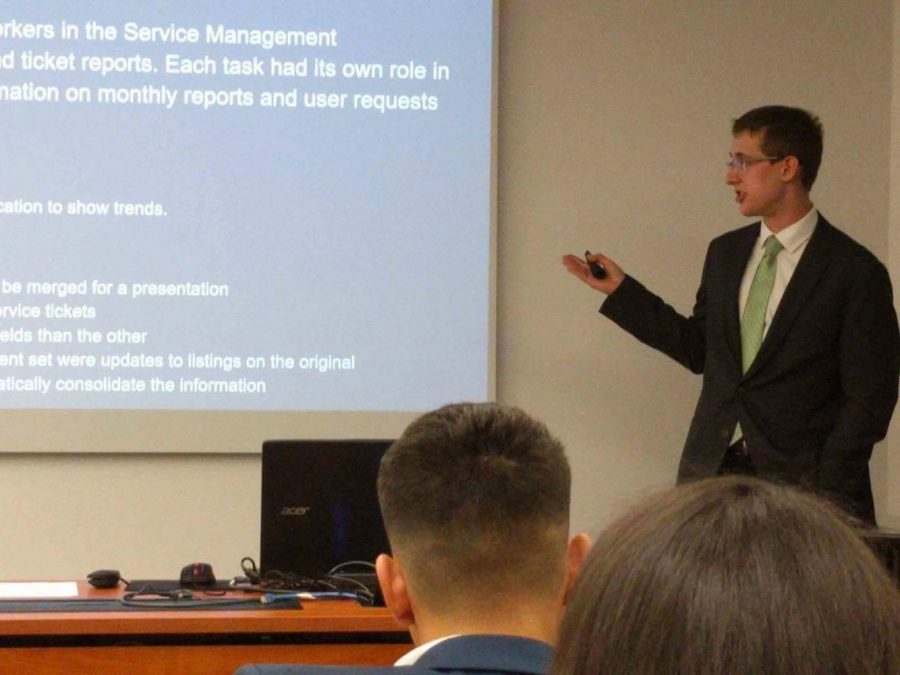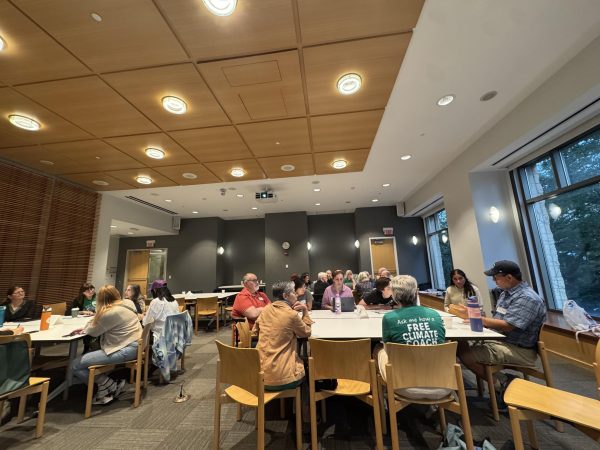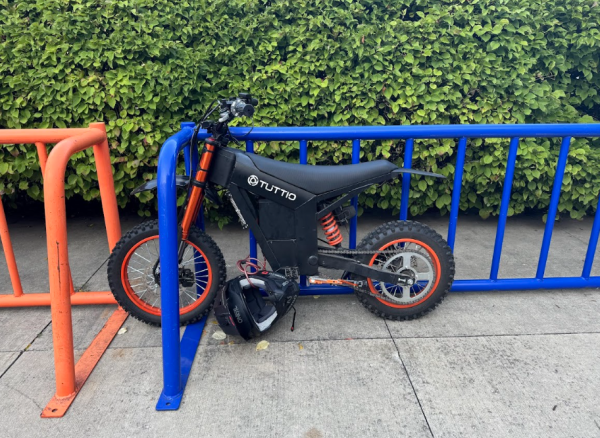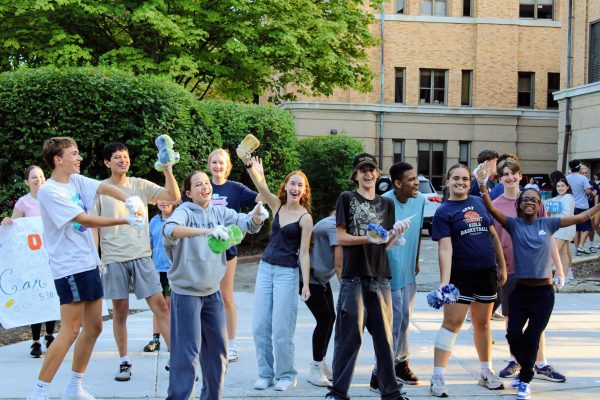Science with Spangler
It is the middle of the summer. This early in the morning, most high schoolers would be enjoying their sleep, procrastinating completion of their summer math packets and required books. Not Jacob Spangler, though. He is at the bus stop, ready to take on the challenge of the day as intern at Fermilab, one of the largest particle physics laboratories in the world.
Spangler, current OPRF junior, participated in TARGET, a science and engineering program at Fermi National Accelerator Laboratory this summer. Sandra Charles, head of the program and Manager of Diversity and Inclusion at Fermilab, describes the program’s goal: to “encourage high school students to undertake college study and pursue careers in the STEM disciplines.”
As an intern, Spangler did not just follow paid employees around and get in the way. In fact, he said, “We were doing systems and data management for the computing projects. At Fermilab, they have a huge computing sector and a lot of it is just processing data from the experiments.”
Spangler’s work also had real benefits. For example, in Switzerland, there is a massive particle accelerator called CERN. A particle accelerator is a machine that smashes atoms and other tiny particles of matter into one another at incredibly high speeds in order to observe how these particles interact, thus giving scientists insights into the laws of nature. CERN is one of the largest of these machines.
However, often the data is too large for scientists in Europe to analyze it all. “CERN produces so much raw computing data that they are not capable of processing it all there, so they send a bunch of it to Fermilab, and we have these huge computing
processors, and then we send it back to them,” said Spangler. “My job was working with the management of all the different computing processes, such as data allocation, budgeting, and analyzing trends… and proposing solutions to make it run more efficiently.”
Because of the rigor and practical application of the skills learned through the TARGET program, an internship at Fermilab is a highly sought-after position. Only 25 of 300 applicants were accepted as interns. “There was a pretty large application packet that included personal information, extracurriculars we’ve done, past activities we’ve been involved with, clubs we do, and what we could do as interns,” said Spangler. “There was also a pretty substantial essay about why we wanted to do it.”
Now this begs the question: Why? Many people would rather spend their summers relaxing, but Spangler saw the internship as a way to get valuable real-life experience. “I’ve known for a while I was interested in going into computer science for college and eventually a career… but I’ve never really had a chance to work on a real world computer science project,” he said. “It was interesting to me that I could spend six weeks working in an actual office… where I had to solve issues made up by the College Board.”
Spangler’s involvement wasn’t just to bolster his personal experience, though. He saw the TARGET program as a chance to make a difference in the world. He got to solve “…actual problems people in the real world were facing, and whatever solution I could develop would be helpful in some small part to these pretty important physics experiments,” he said. “Even though what I was doing was a pretty small part of it, it was really exciting to be a part of (the experiments) in a meaningful way.”
Spangler’s enthusiasm for his work helped him stand out to Charles. “Jacob’s application and interview clearly presented a focused, articulate and driven applicant who valued the internship opportunity for both career exploration and personal growth.”
Although Spangler wasn’t able to get his tan on this summer, he was able to gain real-world experience in a field he cares deeply about. “Just being a part of these huge experiments was really exciting to me; I felt like I grew a lot just by being able to do it.”






